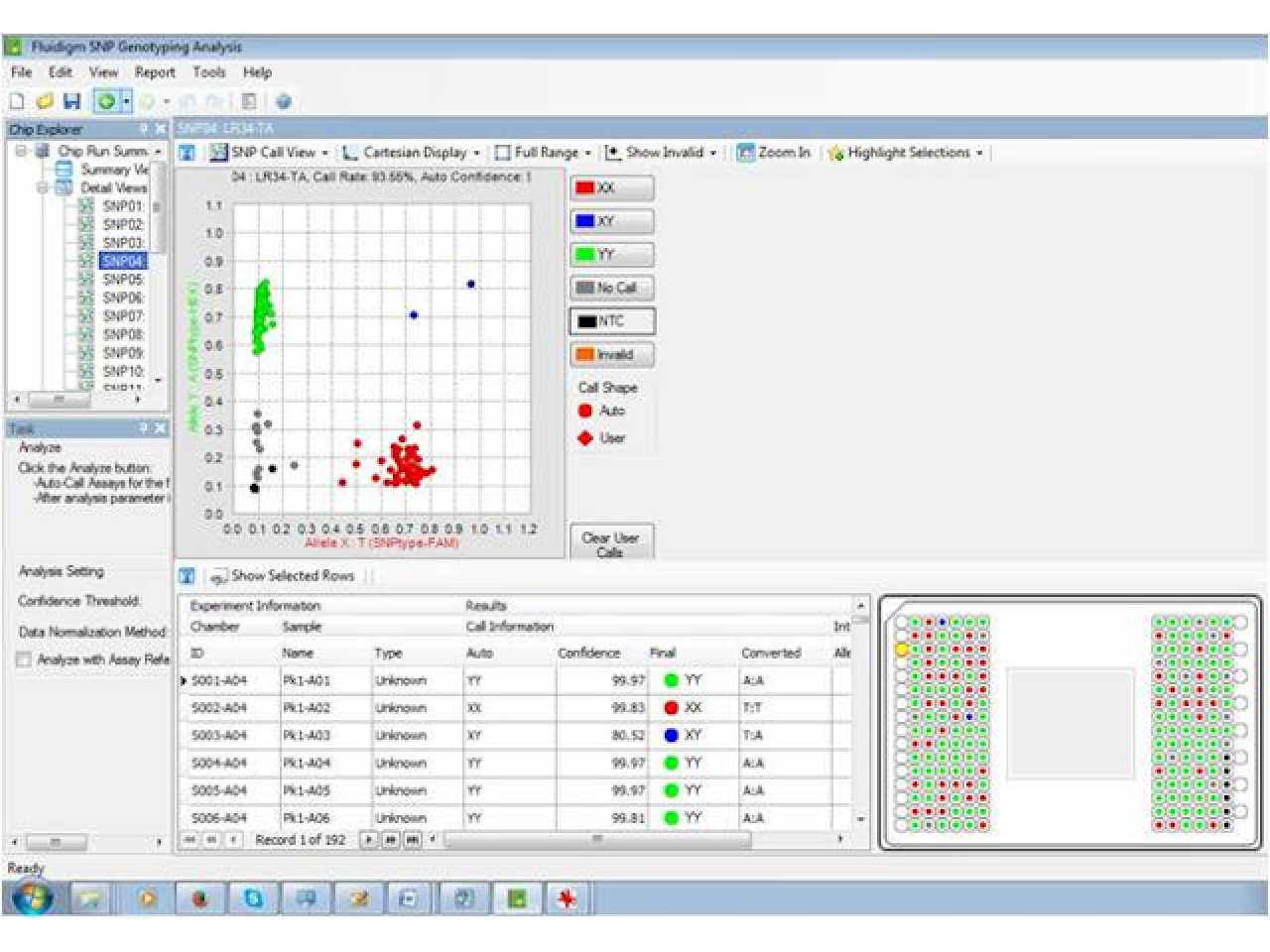Development of a 24 SNP (Single Nucleotide Polymorphism) markers set for the parallel analyses of multiple of molecular markers associated with earliness and resistance to low temperatures in tomato. SNP-based markers are based on single DNA base differences, and are among the most widely used tools for molecular characterization of plants. The genotyping platform used (Fluidigm EP-1), thanks to its capacity to process a great number of sample at the same time ( up to two chips of 192 DNA x 24 markers can be analysed each day), allows to increase the efficiency of assisted selection programs enabling the analysis of large breeding populations.
SNP markers are evenly distributed in the genomes, and represent the most frequent type of genetic variation. Their most important advantage is given by the presence of only 2 allelic variants and the high transferibility of anlysis protocols between labs and experiments. Fluidigm EP-1 platform can be used in the agro-food industry and allows us to offer to seed companies and breeders a fast and cheap service of genotyping and marker-assisted genetic selection.
The developed chup of 24 molecular markers set can be used for assisted selection, development of new cultivars and molecular characterization of genotypes collections. On request, the lab is also able to develop molecular markers sets correlated to other traits in processing tomato (e.g. tolerance to blossom-end rot) or other crops upon request, providing genotyping and assisted selection services for seed companies and breeders.
Genetic characterization of a processing tomato genotypes collection using a set of molecular markers associated with earliness and tolerance to low temperatures for assisted selection of new cultivars
A set of 24-markers has been developed under a frame of a POR-FESR project aiming to characterize a processing tomato collection of genotypes aimed at studying the "earliness" and "tolerance to low temperatures" traits. Study consisted in a bibliographic research for detecting the genes influencing the traits, a genotyping-by-sequencing of a panel of tomato cultivars and a bioinformatic analysis aimed at detction of the genetic polymorphisms and alleles that are putatively positive for the studied traits. After an optimization process aimed to select the most suitable markers, we obtained a set of 24 specific and co-dominant SNPs usable for the chip.
ISI Sementi - Fidenza (PR), ITALY Mutti Industria Conserve Alimentari - Parma, ITALY
Data derived from SNPs and detailed phenotypic evaluations allowed the identification of accessions carrying the desired traits "earliness" and "tolerance to low temperatures" for the production of processing tomato.
 Result for the genotyping of a set of markers
Result for the genotyping of a set of markers

